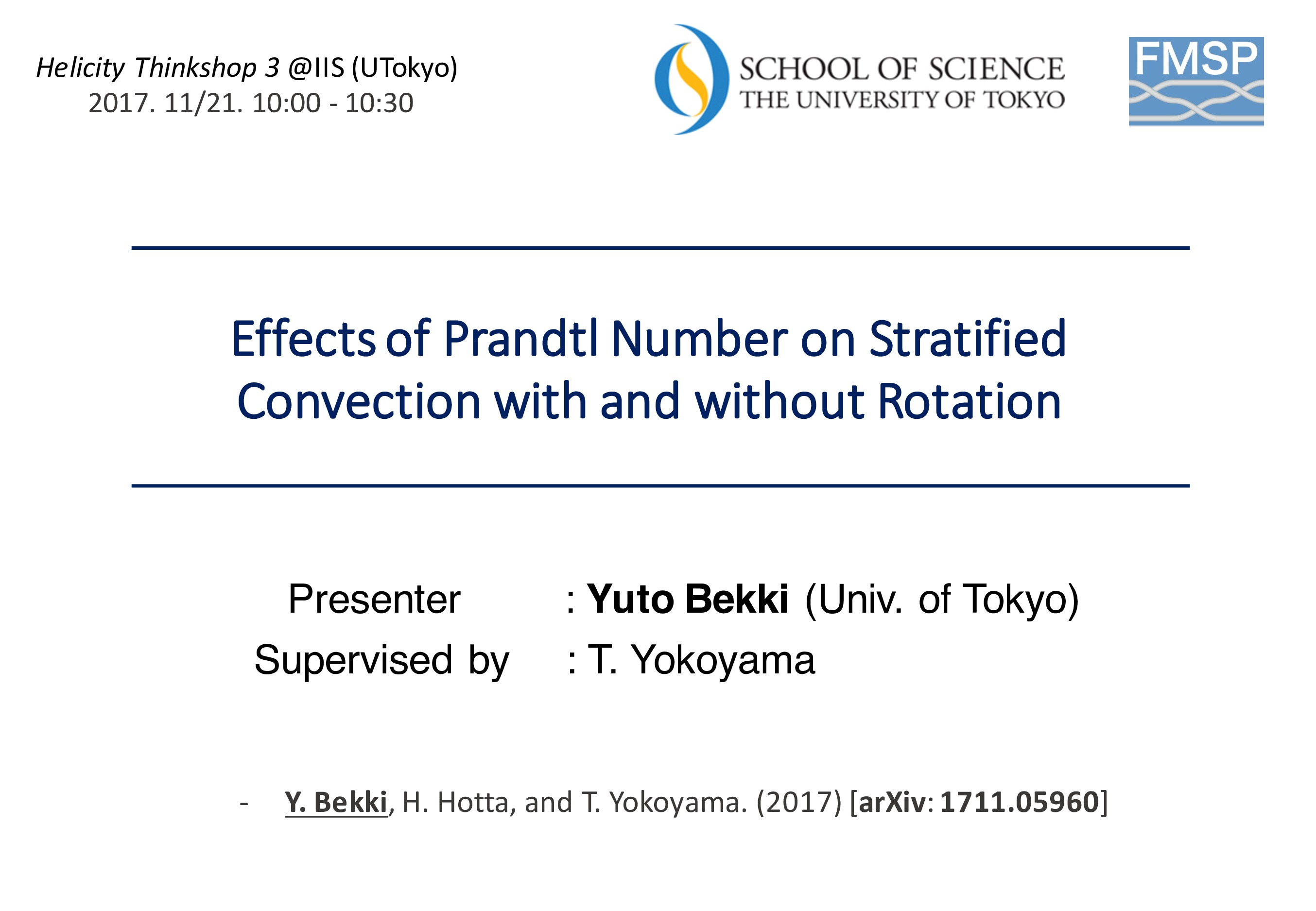Main category
Natural Sciences (Astrophysics and Astrononmy)
Abstract
High-resolution solar convection simulations have been suffering a problem called ‘convective conundrum’; they tend to fail in reproducing the observed solar-like differential rotation owing to an over-estimation of convective velocities and thus the Rossby number (e.g., Hanasoge et al. 2012, Gastine et al. 2013). One possible culprit for this problem is the prevailing small-scale magnetism generated by small-scale dynamo that cannot be fully resolved by current numerical simulations (Hotta et al. 2015, 2016). Several recent works, in fact, have demonstrated that the convective velocities can be suppressed if the essentially-magnetized solar convection operates in an effectively high-Prandtl number regime (O'Mara et al. 2016, Bekki et al. 2017). However, no rotational effects were considered in these previous studies. Here, we report the results of compressible convection simulations using a local f-plane box model with different Prandtl numbers and discuss how the deep convective amplitudes and stratification are influenced by rotation. The properties of the turbulent Reynolds stress and the resulting large-scale mean flows are also investigated and will be compared with the results of full-spherical convection simulations.
Do you have problems viewing the pdf-file? Download presentation
here
If the presentation contains inappropriate content, please
report the presentation. You will be redirected to the landing page.
